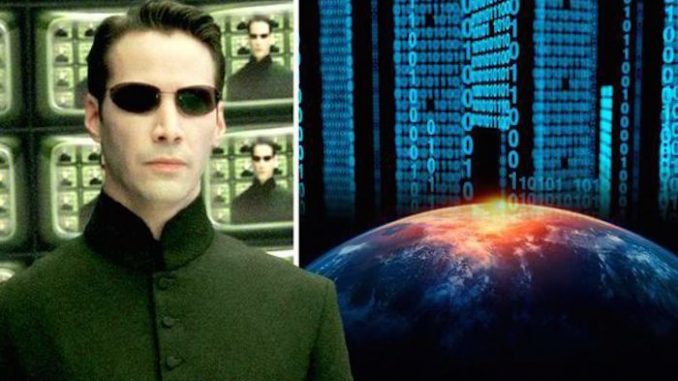
Two of the world’s leading scientists have said that the world we live in is a provable “illusion”, claiming that humans are tricked into believing their reality.
Cognitive scientist Donald Hoffman, and Senior Lecturer in Philosophy at the University of Notre Dame, Laura D’Olimpio, both say that the world we think we live in is nothing more than a computer-like simulation.

BYPASS THE CENSORS
Sign up to get unfiltered news delivered straight to your inbox.
You can unsubscribe any time. By subscribing you agree to our Terms of Use
Latest Video
Dailymail.co.uk reports:
Consider this: right now, you are not where you think you are.
In fact, you happen to be the subject of a science experiment being conducted by an evil genius.
Your brain has been expertly removed from your body and is being kept alive in a vat of nutrients that sits on a laboratory bench.
The nerve endings of your brain are connected to a supercomputer that feeds you all the sensations of everyday life.
This is why you think you’re living a completely normal life.
Do you still exist? Are you still even ‘you’? And is the world as you know it a figment of your imagination or an illusion constructed by this evil scientist?
Sounds like a nightmare scenario. But can you say with absolute certainty that it’s not true?
Could you prove to someone that you aren’t actually a brain in a vat?
The philosopher Hilary Putnam proposed this famous version of the brain-in-a-vat thought experiment in his 1981 book, Reason, Truth and History, but it is essentially an updated version of the French philosopher René Descartes’ notion of the Evil Genius from his 1641 Meditations on First Philosophy.
While such thought experiments might seem glib – and perhaps a little unsettling – they serve a useful purpose.
They are used by philosophers to investigate what beliefs we can hold to be true and, as a result, what kind of knowledge we can have about ourselves and the world around us.
Descartes thought the best way to do this was to start by doubting everything, and building our knowledge from there.
Using this skeptical approach, he claimed that only a core of absolute certainty will serve as a reliable foundation for knowledge.
He said: If you would be a real seeker after truth, it is necessary that at least once in your life you doubt, as far as possible, all things.’
It is from Descartes that we get classical sceptical queries favoured by philosophers such as: how can we be sure that we are awake right now and not asleep, dreaming?
To take this challenge to our assumed knowledge further, Descartes imagines there exists an omnipotent, malicious demon that deceives us, leading us to believe we are living our lives when, in fact, reality could be very different to how it appears to us.
The brain-in-a-vat thought experiment and the challenge of scepticism has also been employed in popular culture.
Notable contemporary examples include the 1999 film The Matrix and Christopher Nolan’s 2010 film Inception.
By watching a screened version of a thought experiment, the viewer may imaginatively enter into a fictional world and safely explore philosophical ideas.
For example, while watching The Matrix, we identify with the protagonist, Neo (Keanu Reeves), who discovers the ‘ordinary’ world is a computer-simulated reality and his atrophied body is actually suspended in a vat of life-sustaining liquid.
Even if we cannot be absolutely certain that the external world is how it appears to our senses, Descartes commences his second meditation with a small glimmer of hope.
At least we can be sure that we ourselves exist, because every time we doubt that, there must exist an ‘I’ that is doing the doubting.
This consolation results in the famous expression cogito ergo sum, or ‘I think therefore I am’.
So, yes, you may well be a brain in a vat and your experience of the world may be a computer simulation programmed by an evil genius.
But, rest assured, at least you’re thinking.


